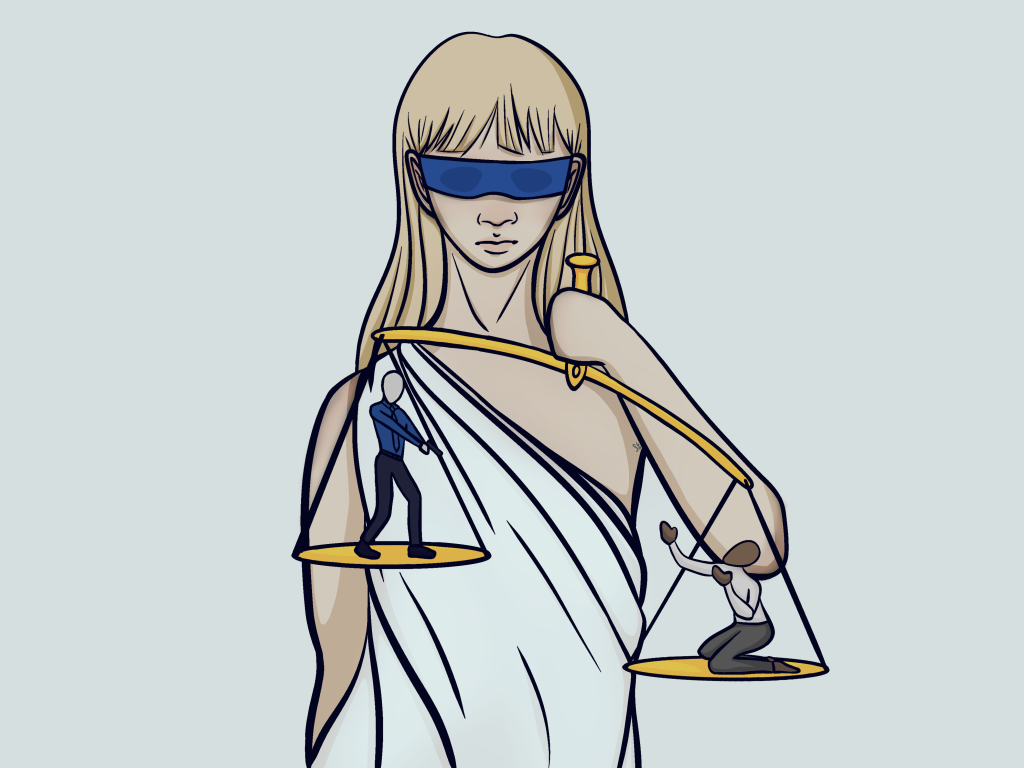There are no true repercussions for perpetrators of police brutality
Once again, the trial for the three Tacoma police officers charged in the killing of Manny Ellis has been delayed.
On March 3, 2020, lifelong Tacoma resident Manny Ellis died while being arrested by Christopher Burbank, Matthew Collins and Timothy Rankine, three on-duty Tacoma police officers. Ellis was tasered, choked, punched and kneeled upon. Officers placed a spit-hood over his head and pushed his face into the street asphalt. Ellis died at the scene.
Ellis’ final statements are a grim echo of George Floyd’s last words: a police radio recorded Ellis repeatedly pleading “can’t breathe, sir.”
Rankine is charged with first-degree manslaughter. Manslaughter typically indicates a reckless disregard for life but does not involve malice or an intent to kill. Collins and Burbank are charged with second-degree murder.
The trial was originally scheduled for Jan. 30, 2023 but has now been delayed yet again until September 2023, pending the outcome of a Washington Supreme court case set to determine whether internal affairs statements from an officer who was not charged should be released to prosecutors.
There have been no functional repercussions for Burbank, Collins or Rankine. During the internal investigation, they were placed on administrative leave and continued to receive their salary from the city of Tacoma. Although they were detained in jail pending the trial, they were bailed out that very same day by a local Tacoma businessman. For three years, they have gone about their lives in our community awaiting trial. They have been able to go grocery shopping, relax at home with loved ones and celebrate the holidays.
Meanwhile, Ellis’ family and friends are still living a nightmare. Three years later, Manny is still dead, legal fees are piling up and the court date is continually pushed back. For victims of police brutality and their families, justice is shallow, if it ever comes at all.
Unfortunately, this is not uncommon in the United States. Trials involving unjust killings and police misconduct against citizens can drag on for years. Those who are convicted of a crime are often handed sentences involving house arrest, probation, or a few paltry years in prison.
In a finance-based legal system such as the one we have in America, you have to be able to pay to retain a lawyer to even file charges. If you are poor, you cannot afford justice. The US census reports that Black people experience poverty at a significantly higher rate than white people (21% versus 9%). In a country with heavily entrenched systemic racism, people of color are far more likely to experience police violence. Mapping Police Violence, a nonprofit that keeps track of police shootings, reports that although Black people are 13% of the US population, they make up a disproportionate 27% of those who are killed by police. Combining these two factors, people of color are far more likely to be killed by police as well as be unable to access legal justice.
An on-duty police officer can be reasonably assured that they will not be found culpable for any acts of racial violence committed against the public. The police in the United States possess functional legal immunity, performing in the field as judge, jury, and executioner. Operating like any other gang in their territory, police possess a monopoly on the use of force, and any resistance against that force is a potential justification for your execution in the street. That should scare you. It scares me.



